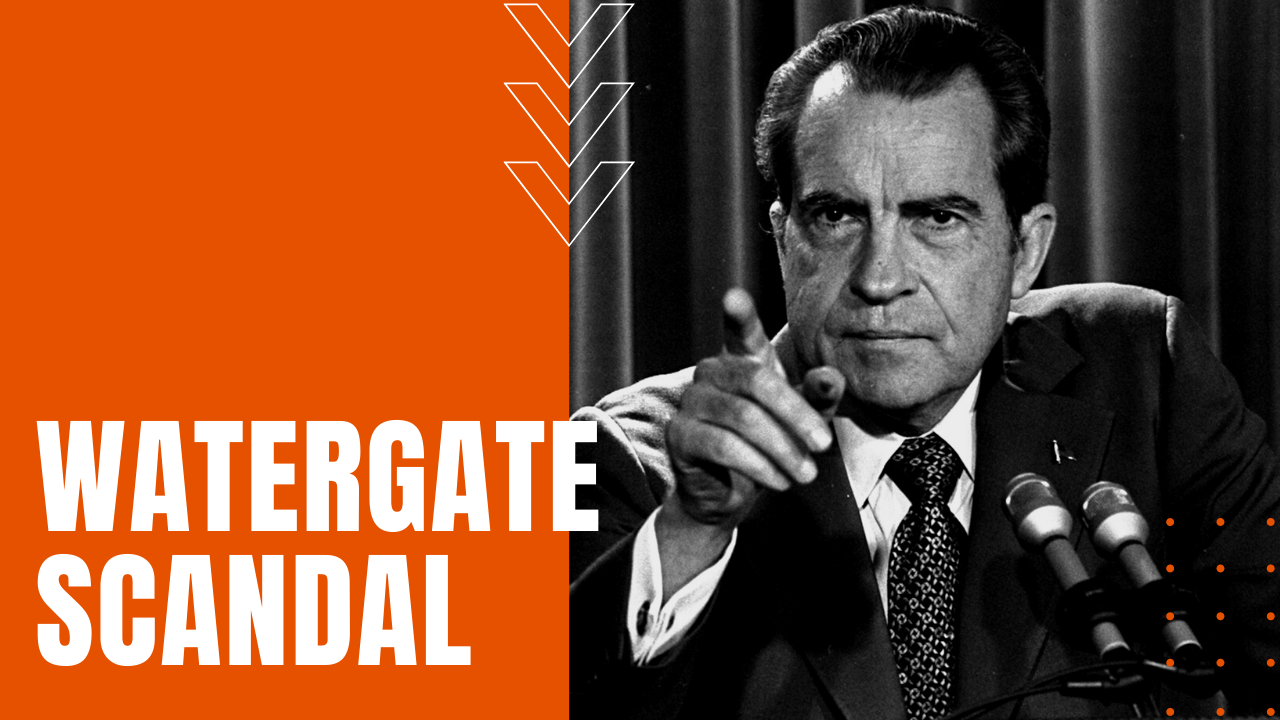Watergate Scandal: President Nixon’s Political Espionage Revealed

What Was the Watergate Scandal?
In 1972, when Richard Milhous Nixon began campaigning for a second term in office, Americans were politically divided over the Vietnam War, leading Nixon’s advisors to employ aggressive and quite illegal campaigning techniques, which saw members of Nixon’s Committee to Re-Elect the President (known derisively as CREEP), to break into the Democratic National Committee’s headquarters in the Watergate office complex in Washington, D.C., bugging phones and copying top-secret documents in an effort to gain an upper-hand on their political rivals.
When the wiretaps began to fail, however, on June 17th of that same year, five burglars were caught redhanded as they prepared for a second break-in, leading detectives to find evidence on the men, including a phone number at the White House.
The “Deep Throat” Whistleblower
Over the next two years, the truth would be revealed through the efforts of a Senate investigating committee led by trial judge John Sirica and an independent special prosecutor named Archibald Cox, along with two investigative reporters from the Washington Post named Bob Woodward and Carl Bernstein. Aided by an anonymous whistleblower code-named “Deep Throat”—later revealed in 2005 to be Mark Felt, a former associate director at the FBI—Woodward and Bernstein exposed hush-money payments to seven burglars linked directly to the White House, as well as Nixon’s push to have the CIA impede investigative efforts by the FBI.
When White House counsel John Dean testified before the Senate’s investigative committee about Nixon’s insistence on taping all conversations to and from the Oval Office, lawmakers began a full-court press, demanding that Nixon hand over all tapes in question. In what became known as the Saturday Night Massacre, when Cox refused to back down on his demands, on October 20th, 1973, Nixon ordered his firing, which in turn led several Justice Department officials to resign in protest.
President Nixon’s Downfall and Resignation
Matters worsened in March the following year, when a special grand jury indicted seven former aides to the president, followed by a July order by the Supreme Court, demanding that Nixon hand over all of his tapes, and when Nixon dragged his feet on the matter, the House Judiciary Committee voted to impeach the president on charges of obstruction of justice, abuse of power as well as criminal violations to the Constitution.
Cornered and out of options, Nixon released the tapes on August 5th, 1974, which exposed irrefutable evidence of his complicity. Three days later, Nixon would become the first sitting American president to resign from office. Insert resignation soundbite.
A day later, Nixon would leave Washington for his adopted city of San Clemente California, living quietly and largely out of the public’s eye until his death on April 22nd, 1994, making the Watergate Scandal, a Shakespearian tragedy come to life.
